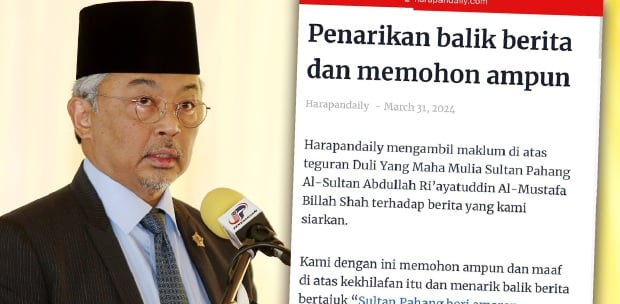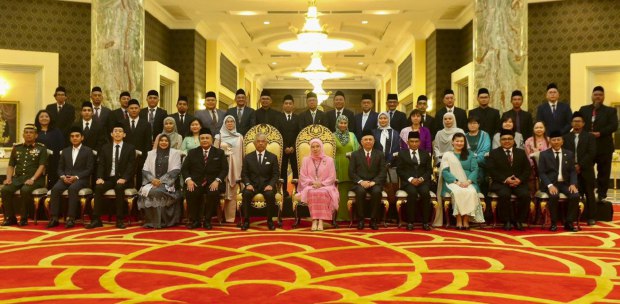A LIFE sentence may not necessarily be a life sentence – a legal maxim I learned when studying at Lincoln's Inn, England, in the late 1960s.
I was reminded of this when Yang di-Pertuan Agong Al-Sultan Abdulllah Ri'ayatuddin Al-Mustafa Billah Shah granted an early pardon to 13 Al-Ma'unah members in conjunction with
the 63rd National Day celebrations.
The 13 convicted men were serving life sentences handed by the Kuala Lumpur High Court in 2001.
They were convicted of waging war against the Yang di-Pertuan Agong under section 121 of the Penal Code.
They were members of the terrorist group known as the Persaudaraan Ilmu Dalam Al-Ma'unah (Brotherhood of Al-Ma'unah Inner Power), or Al-Ma'unah.
The group caused a major security alert in 2000 with a raid on a military armoury.
They were captured in a jungle hideout in Perak following a four-day stand-off with security forces.
They took four hostages and killed two of them (a policeman and a soldier) before surrendering.
On Oct 29, 2018, the Dewan Rakyat was told (in a written reply by the Home Ministry) that 13 members of the Al-Ma'unah militant group were in prison, while four had been sentenced to death and 10 released from prison.
Istana Negara's Comptroller of the Royal Household, Datuk Ahmad Fadil Shamsuddin, said the 13 convicts had appealed for a royal pardon.
Acting on the advice of the Pardons Board of the Federal Territories of Kuala Lumpur, Labuan and Putrajaya, His Majesty had exercised his royal prerogative of mercy under Article 42 of the Federal Constitution.
The board had met on Sept 4, 2019, and July 24 this year. Fadil said the early pardon was due to the convicts' good behaviour in prison. The prerogative cannot be questioned.
The royal prerogative of mercy is contained in Article 42 of the Federal Constitution.
Clause (1) of that Article states that the Yang di-Pertuan Agong has the power to grant pardons, reprieves and respites in respect of "all offences" committed in the Federal Territories of Kuala Lumpur, Labuan and Putrajaya, and the rulers and governors have similar powers in respect of offences committed in their states.
Article 42 sets out the composition of the Pardons Board (Clause 5), the duty of the board to meet in the presence of the ruler, who "shall preside over it" (Clause 8), and the duty of the board to tender their advice to the ruler after considering "any written opinion" on the matter
by the attorney-general (Clause 9).
Does the law require the Yang di-Pertuan Agong to heed the advice of the Pardons Board?
Can he ignore such "advice" or the recommendations of the board?
In Karpal Singh v Sultan of Selangor [1985] 1 MLJ 64, the issue before Abdul Hamid (chief justice Malaya) was whether before the Sultan of Selangor makes his decision to grant clemency or not, must he consider the
advice of the Selangor Pardons Board?
The chief justice held, citing the earlier case of Sim Kie Chon [1985] 2 MLJ 385, that the power to grant a royal pardon "is a power of high prerogative of mercy", which is not susceptible or amenable to judicial review.
In that case, the court had held that, although the board had tendered advice to the Yang di-Pertuan Agong, the law does not make it mandatory for the Yang di-Pertuan Agong to act on the advice of the board.
In a 1982 case involving the murder of the Negri Sembilan State Assembly speaker, Datuk Mokhtar Hashim, then a federal minister, was arrested, tried, convicted and sentenced to death in 1983.
However, the death sentence was commuted to life and he was pardoned and released in July 1991.
In many European countries, the law expressly provides for life sentences without the possibility of parole.
In the United States, a life sentence means imprisonment of 15 years, after which the convict will be released on parole.
Recently, in New Zealand, the trial judge in Tarrant's case (convicted of 92 offences) had imposed a life sentence without the possibility of parole.
The writer, a former federal counsel at the Attorney-General's Chambers, is deputy chairman of Kuala Lumpur Foundation to Criminalise War






